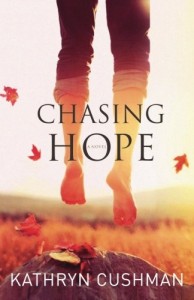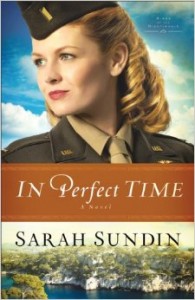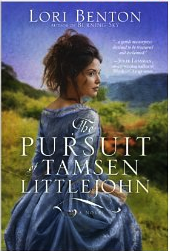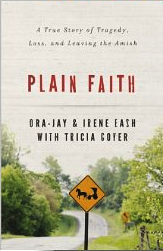Blogger: Wendy Lawton
Last Tuesday we started our discussion about writer productivity and word count goals. If you missed it, you can find it here. I received such great input from many of our Books & Such authors, I want to continue their advice today. Here’s what they had to say when I asked them about their daily writing goals:

Kathryn Cushman: I make weekly goals (5000-7000 words). Then, I make a daily goal each morning based on what’s going on in my life that day. Mondays and Thursdays are busy for me, so I aim at a lower word count, Tuesday and Wednesdays are my big writing days so I aim big. Friday’s goal is whatever is left over.
 Kathleen Y’Barbo: My process is a little different than the ones I’ve read so far. I learned this many years ago from Tracie Peterson, and it works very well, especially for planning my writing time at the beginning of the project. Working with Tracie in her Barbour days, I learned to harness the power of my “pantser” ways to create a very detailed synopsis from which to write. I may cut back and send Wendy a shorter version in the proposal, but often for a 100k book, I have as many as 20 pages of synopsis that I print out and divide into chapters. This gives me an idea of how many chapters will be in the book, although the number and the content of those chapters often change as the book is being written. Having the synopsis in hard copy also allows me to scribble all over it and to cross off each chapter as it is written. Now comes the goal planning. Using a four day week (Monday through Thursday), my goal is to write one chapter (10-15 double spaced manuscript pages or around 3000 words) each day. Building in at least two weeks for edits, I work backwards from the deadline to schedule the writing of the book then I fill in the weekly goals (chapters 1-4 in week 1, chapters 5-8 in week 2, etc) on my calendar and in Scrivener. I write at the speed of approximately 1000 words per hour, so this is a great schedule for me. If my four chapters are done by Thursday, then Friday is play day, as is Saturday. If not, then I write on those days in order to meet my goal for the week. Because life often intervenes–as does demands for PR, blogs, research, etc–having the flexibility of two extra days each week really helps me stay on track. Also, when I’m on a roll, I love getting ahead of my goal. There’s no better feeling.
Kathleen Y’Barbo: My process is a little different than the ones I’ve read so far. I learned this many years ago from Tracie Peterson, and it works very well, especially for planning my writing time at the beginning of the project. Working with Tracie in her Barbour days, I learned to harness the power of my “pantser” ways to create a very detailed synopsis from which to write. I may cut back and send Wendy a shorter version in the proposal, but often for a 100k book, I have as many as 20 pages of synopsis that I print out and divide into chapters. This gives me an idea of how many chapters will be in the book, although the number and the content of those chapters often change as the book is being written. Having the synopsis in hard copy also allows me to scribble all over it and to cross off each chapter as it is written. Now comes the goal planning. Using a four day week (Monday through Thursday), my goal is to write one chapter (10-15 double spaced manuscript pages or around 3000 words) each day. Building in at least two weeks for edits, I work backwards from the deadline to schedule the writing of the book then I fill in the weekly goals (chapters 1-4 in week 1, chapters 5-8 in week 2, etc) on my calendar and in Scrivener. I write at the speed of approximately 1000 words per hour, so this is a great schedule for me. If my four chapters are done by Thursday, then Friday is play day, as is Saturday. If not, then I write on those days in order to meet my goal for the week. Because life often intervenes–as does demands for PR, blogs, research, etc–having the flexibility of two extra days each week really helps me stay on track. Also, when I’m on a roll, I love getting ahead of my goal. There’s no better feeling.
 Sarah Sundin: I think in terms of chapters rather than word count. I divide the total number of chapters by the number of months to complete the rough draft, then set monthly chapter goals (usually about 8). Each week I set daily goals, giving myself about 2 days per chapter. Since my chapters average 2000 words, this is about 1000 words per day. However, this varies per day. Mondays and Wednesdays I can get lots of writing done, Tuesdays and Thursdays barely any, etc. I find when I set word count goals, it stifles me. I feel like I’m writing a high school essay, desperate to pad my word count. But when my goal is to write a chapter, the story guides me – and I don’t care about the number of words – and it flows! But I’m odd.
Sarah Sundin: I think in terms of chapters rather than word count. I divide the total number of chapters by the number of months to complete the rough draft, then set monthly chapter goals (usually about 8). Each week I set daily goals, giving myself about 2 days per chapter. Since my chapters average 2000 words, this is about 1000 words per day. However, this varies per day. Mondays and Wednesdays I can get lots of writing done, Tuesdays and Thursdays barely any, etc. I find when I set word count goals, it stifles me. I feel like I’m writing a high school essay, desperate to pad my word count. But when my goal is to write a chapter, the story guides me – and I don’t care about the number of words – and it flows! But I’m odd.
 Lori Benton: I don’t set a word count goal, but a day when I write 1000 words is a satisfying day. My daily goal is story oriented. I start the day with a goal such as “Write the part where William and Joseph have the conversation about the dream and his brother.” That might take 500 words, or 1000, or more. If that gets finished (which means I’ve gone over it three or four times after the initial writing) and there’s still something left of me and/or my writing time, I might sketch out the next bit, or turn my focus to writing an interview or an article. But it’s never about the number of words, since I know I’ll need to cut whatever I write by about 1/3 anyway. Writing many words each day is not necessarily a good thing, in my case.
Lori Benton: I don’t set a word count goal, but a day when I write 1000 words is a satisfying day. My daily goal is story oriented. I start the day with a goal such as “Write the part where William and Joseph have the conversation about the dream and his brother.” That might take 500 words, or 1000, or more. If that gets finished (which means I’ve gone over it three or four times after the initial writing) and there’s still something left of me and/or my writing time, I might sketch out the next bit, or turn my focus to writing an interview or an article. But it’s never about the number of words, since I know I’ll need to cut whatever I write by about 1/3 anyway. Writing many words each day is not necessarily a good thing, in my case.
 Tricia Goyer: So interesting! Most of my novels are between 85,000 – 95,000 words. When I’m in writing mode I do about 2,000 words a day. That’s a mix of writing/editing. The first 10 chapters are hard, so sometimes (because I’m re-editing what I wrote the day prior), I write only about 1000 words a day. But after chapter 10 the story goes much faster. As deadline nears then things really pick up, and I usually have a 5,000 words a day goal. My biggest day was 8,500, but that usually happens when deadline is only days away and then the story just pours out. As you can tell deadlines work well for me! For non-fiction, it’s a slower process, and I write about 1,000 – 2,000 words a day.
Tricia Goyer: So interesting! Most of my novels are between 85,000 – 95,000 words. When I’m in writing mode I do about 2,000 words a day. That’s a mix of writing/editing. The first 10 chapters are hard, so sometimes (because I’m re-editing what I wrote the day prior), I write only about 1000 words a day. But after chapter 10 the story goes much faster. As deadline nears then things really pick up, and I usually have a 5,000 words a day goal. My biggest day was 8,500, but that usually happens when deadline is only days away and then the story just pours out. As you can tell deadlines work well for me! For non-fiction, it’s a slower process, and I write about 1,000 – 2,000 words a day.
So how about you? Have you reexamined daily writing goals over the last week? If I were to ask you the same question– What is your daily writing goal– what would you answer?
TWEETABLES:
More input from writers on daily word count goals. Click to Tweet
Do you set daily word count goals for your writing? Click to Tweet
Five tips for setting daily word count goals. Click to Tweet


Kathleen’s words per hour made me giggle. On an hourly basis, I travel in fits and starts, kind of like learning to drive a stick shift. I move forward smoothly for a time, then things get bumpy while I shift gears. I hate it when I shift into reverse, deciding that a whole section is going nowhere.
I take comfort in the different perspectives–I’m in the trial-and-error stage, looking for the rhythm that works best for me.
I love your analogy, Shirlee. I, too, hate it when I have to shift into reverse. But sometimes that’s the only way to get the story back on track, isn’t it?
You know, Shirlee, that’s exactly how much of writing productivity goes– fits and starts.
I’ve also found some books fly while others need to be tortured onto the page. BTW, the ease with which the writing goes does not seem to correlate with how good a book it is at all. Some books that just flowed onto the page crash at retail while some books that felt like they were pulled kicking and screaming into publication are huge successes.
Agreed Shirlee! That’s why I build in extra days to my schedule. Those first chapters are sometimes like pulling teeth. The later ones seem to fly by.
It’s so fun to read these descriptions, I’m thinking, “I do that, I do that, I do that,” all on the same project? 🙂
I shoot for at least a thousand words a day when I’ve got a writing day. My chapter runs about 1500 words and I watch them for length as I write. I aim to have my project done a month before deadline so I can go back and clear out all the excessive word use and tinker with the story.
Like Tricia, I find myself rereading the previous day’s writing and editing as I go along, too, so maybe my question would be, any thoughts on how many times you read a manuscript before it’s done?
Thanks for this two-parter, Wendy, it’s fun to see how writers do their work. When do we send in photos of what our desks look like in the process? 🙂
“I do that, I do that, I do that” … priceless, Michelle! 🙂
Doesn’t it seem like you can edit forever? There are always words, groups of words, that can be condensed.
Thank you for sharing that, Michelle.
For be, ten re-readings is about right, with some scenes racking up several more.
Desk? What desk? I write on a laptop set on a folding TV table in one of the ‘kennel rooms’.
A picture would be…well, no. Skype would likely show a close-up of the nose of the Pit Bull who likes to sit in my lap.
For be?
Good grief. Missing a key by one position is one thing, but giving a ‘b’ for an ‘m’ is a bit much.
That’s funny, Andrew! I’ve been working at my dining table because I got a new laptop. My older desktop is taking up all my desk space. I can’t hardly part with it because my daughter uses it, since her laptop is struggling! Ha! And the desktop is too big to go into my daughter’s room. What a problem! 🙂 I keep thinking: I should have never bought a new laptop! 🙂
Pit Bull’s fault?!! 🙂
Seeing my desk would be, um, not a good idea at present, as it’s filled with all sort of stuff. My kitchen table has been my go-to place for writing. 🙂
We’d all love to see a picture of you in your creative environs, Andrew. We already know you are one-of-a-kind. I don’t think we’d be surprised.
Photos of our desks? Hey now!!
Oh wait, I can copy and paste something from somewhere…no worries….
Michelle, 1000 words per day is a great count considering you have a day job that immerses you in writing and words for eight hours. I’ve often thought that the perfect day job for a writer would be dishwasher– where your mind is free to mentally write for eight hours.
Back when I was actively writing I spent much of my day (day job) in my studio sculpting. It was hands-on and got my creative juices flowing. I love to look at my notebooks from back then. They are clay-stained with ideas and scenes and characters scrawled all over them.
Love this view into your past day job at the studio.
It really is amazing how different each author’s method is. Sometimes I feel like the slowest writer in the world. I tend to mull before/while I write. I have to dig into my storyworld and get into the mind of my character. It takes time. Sometimes I’m lucky to get 200 words down in the first hour of my writing time. Once I’m immersed in the story I can speed through it, but it’s usually a slow start. That works fine if I can block off a few uninterrupted hours, but when I only have a half hour here and there, I’m not as productive. Setting a goal is one thing, reaching it is a whole other story. I can plan to have three hours, which should be more than enough time to finish one 1500 word scene. But if those three hours are also filled with “Mom, what’s for dinner?” and “I need help with my homework.” and “Honey, did you pay the electric bill.”, the quality of my words will diminish. Anyone out there relate?
Andrea, there’s nothing wrong with mulling before you write. I would venture to say that most of us do. It’s an essential part of getting to know characters and plot. At the very beginning of a new story, my word count is quite low because I’m working out character’s GMC, backstory, etc. When I start brainstorming a plot, word count grows, but I can’t say it counts for much because it’s all subject to change.
As far as the family interruptions, girlfriend, I am right there with you. 🙂 (For example, this isn’t even my writing time, but I was just now interrupted by my 8yo wanting me to look at her lego creation. BTW, I have no idea what it is, but I’ll make something up. 🙂 ) It took a while for my family to understand the importance of writing time. My oldest have become enthusiastic for it because they are my first beta readers. I typically write when my youngest (ages 5 and 3) are napping. The older children (ages 14, 12, 10, and 8) understand that they are to do something quiet (read, finish schoolwork, play with a quiet toy, go outside) while I write. I’ll check with them before I head to the computer to see if there is a need that I can take care of right then. Otherwise, they know everything else can wait unless there is fire or blood. If I can get two hours this way, I feel like I’ve had a good writing time. I hope that encourages you. Keep writing!
Meghan, with summer upon us, I have talked with my boys. They give me two hours of writing time a day, and I take them to do something fun over the weekend. 🙂 They like this deal, and so do I. It’s like a reward for all of us. 🙂
Wow, Meghan, I admire you writing and raising 6 kiddos. My three are a handful! Thanks for the encouragement! Love Jeanne’s idea of rewarding kids for giving uninterrupted writing time in the summer. I’ll have to try that!
Andrea, I identify with you. I think it’s important to find shortcuts into your story world. I used to use music from that culture or era sometimes. Other times I might watch a snippet of a film taken from that time period to get the rhythm of the language.
That’s part of the time required to write a book.
Great advice. Maybe I can surround my writing area with a pintrest style board that represents my characters. I’m afraid a movie might suck me in, but I’ll try story music. Thanks Wendy!
Mulling it over is all part of the process.
I’ve thought about this since last week, and don’t think I’d change my answer, but a clarification might help someone in a similar position.
No secret that I’m dealing with a rather unpleasant illness; it simply hurts too much to sit up at the computer for long periods of time, so my writing occurs in shorter intervals than that of most people.
However, there’s an upside, and that is that it also hurts too much to get a significant amount of sleep, so I work on a 24/7 schedule (I don’t know when I last HAD ‘a full night’s sleep. It’s in the realm of myth now.).
Therefore I am blessed with a lot of time to write (and do research), so I can make some prtty good word counts (though they are not the goal – scene completion is).
I rewrite as I work through the day’s plan, but subseuaent rewties are quite slow, with constant references back as I’m doing them. Rewites comsume over 90% of the time spent to achieve a finished product.
Do you find you are more creative in the day or night?
BTW, I agree with you. While not necessarily 90% I think rewrites need to take far more time than first draft. Those people who write through their manuscript one time and then type THE END and mail it off scare me. (Remember the old movie, Romancing the Stone? Yeah right.)
Awww, Wendy. You just burst my author aspiration bubble with a needle of reality. Sniff. 😉
Night is better for creativity, definitely. The pregnancy of potential at zero-dark-thirty can give a story wings.
Besides, the Pit Bulls have worn themselves out, and are snoring happily on…well, on my bed.
I love how Kathleen writes a synopsis first. I’ve heard others mention that on this blog. That sure makes synopsis writing easier, it would seem. Once you’ve finished the work, without a synopsis, it’s like pulling teeth to condense it all.
A question. I’ve often heard people say they trudge through the beginning chapters a bit … then it flows so smoothly. Do you think those chapters suffer a bit? And do we have to work extra hard in the edit to improve them? I’ve noticed in my work … especially my second chapter … I’m moving my characters forward to where they need to be, and well, it’s not my favorite chapter. I need to find a way to make it my favorite chapter.
To make a second chapter you’ll love, base a character on Brad Pitt and introduce him as he’s eating chocolate.
Seriously – yes, the first chapters are the hardest because each new book has its own learning curve. You’re an expert in the craft of writing, but you are NOT yet an expert on how your character behave and interact. You have to learn them.
It would be more troubling if the first chapters went smoothly – that could indicate that you’ve fallen into formulaic writing
That’s the truth, Andrew. I am definitely not an expert on fiction. And with this my first fiction work, I noticed by mid book, I was soaring more. I really loved my last chapters. I know I need to work on the POV, but I can sure tell how everything improved toward the end. My imagination broke out! 🙂
Brad Pitt and chocolate? SERIOUSLY???
Dude, tu es loco!!! AND yer crazy!!
Pierce Brosnan and chocolate.
Chocolate! I’m glad I have to go into town today! 🙂
Sometimes those first chapters get deleted because they are where we’re getting to know the characters. (I know, scary thought!). If you’re moving your characters toward where they need to be, maybe you need to begin your second draft of your story when they’re where you know they need to be. 🙂 I struggle with this too, Shelli.
Jeanne … I’ve been pondering this … it IS scary! Chopping block! As time goes on, it does get easier to chop. I think my first few chapters are like a puzzle to me now … I need some of it, don’t need some of it … and I need to figure out how to piece the puzzle together. Then, be finished, take in all I’ve learned, and proceed with a new project! 🙂
Trust me, friend. Been THERE. Done THAT. 🙂
We often see manuscripts that need to start at the second or third chapter. The first chapters seem to be an exercise in finding the story.
I am always going back and tweaking the first chapters, or so it seems. I think even with a synopsis, the characters surprise is. Discovering who they are is, at least for me, the reason I find those first chapters harder to write. Conversely, they are among the easiest to revise.
I love these! It amazes me how writers approach things so differently!
I have my next 2 books drafted and 1/3 written. So It will be a matter of putting my hand to the plow and editing until my freckles drop off from fatigue.
Wow, Jennifer!
But don’t you love the editing? It’s my favorite part.
I truly love editing, Wendy, I simply love it. To find the exact word, or phrase? Ahhh. To me it’s like exploring somewhere you’ve been before, but now you have time to sit and feel every nuance of where you are.
I’m getting close to beginning my next book. For the first time, I’m going to write a full synopsis first and see where that leads me.
I love reading how writers each have their unique way of creating a book. I really like the idea of looking at what each week holds and planning my writing accordingly.
I’m still a scene-by-scene girl. As in, I plan to write two scenes today. I know that will give me about 300-3500 words. But it may be more or less and that’s okay.
I really like the idea of working hard Mon-Thur and if I meet my goals, then Friday is a play day. If not, then Friday is a work day. I may try to incorporate that.
Thanks for sharing these ideas, Wendy!
It’s fun to experiment and see what works for you, Jeanne. You notice how different everyone is? That’s one of the most important things to note–YMMV*
*Your mileage may vary. Key issue here.
I’m taking these words to heart, Wendy. YMMV. Good thoughts. 🙂
I recently switched to writing the synopsis first, too. I LOVE it! I also write in scenes, which I then check word count–just so that I feel successful.;)
That’s good to know, Jen. 🙂
The reason you can write faster at the end is you know the characters and the story. I took nearly a year to write the first 80% of my current project–but I was starting nearly from scratch with research.
The last 20%? I wrote it in a week. Everything flew!
I can’t wait to read your new book, Michelle. Any work that contains Oswald Chambers must be a great read.:)
Yep. Ramp time. If you do a google search of ramp time you’ll find myriad ideas for shortening ramp time (in industry, of course) and estimating ramp time, etc. It’s a given.
This is so interesting. One of my favorite posts. I love looking at other people’s writing styles and actually seeing how they do it. Um…my writing goal today. Stop reading writing blogs and jump into those 4 chapters that my critique partner just kindly slashed to pieces for me, then make them better!
Kristen, thanks for the nudge. I need to get off the ‘net and back to writing, too. 🙂
Do you know what a blessing it is to have a slasher for a crit partner?
I make sure the words count – rather than count the words.
I write 1,000 words or more during the writing stage of a manuscript, which usually equals a scene. When the words are flowing, I write two scenes. I tend to be a slow writer, but when I tell the editing side of my brain to leave me alone the words come easier. Like other writers, I reread what I’ve written and edit as I go.
I really like the idea of writing the synopsis first, too. Gonna give that a try on the next book. Since your post last week, Wendy, I’ve been averaging about 1,000 words a day. It’s been fun, and I’ve moved both my works in progress nicely. Thank you so much for addressing this!
I write every morning and aim for two hours, with a goal of 1,000 words. For Monday through Friday, that’s 5,000 words for my WIP and up to 2,000 words (but usually less) on Saturday and Sunday for blog posts and other writing projects. (Of course, I write for my day job, too!)
I’m always thinking about my goals, but have had to consider writing less lately because so much of my time is taken up with other things.